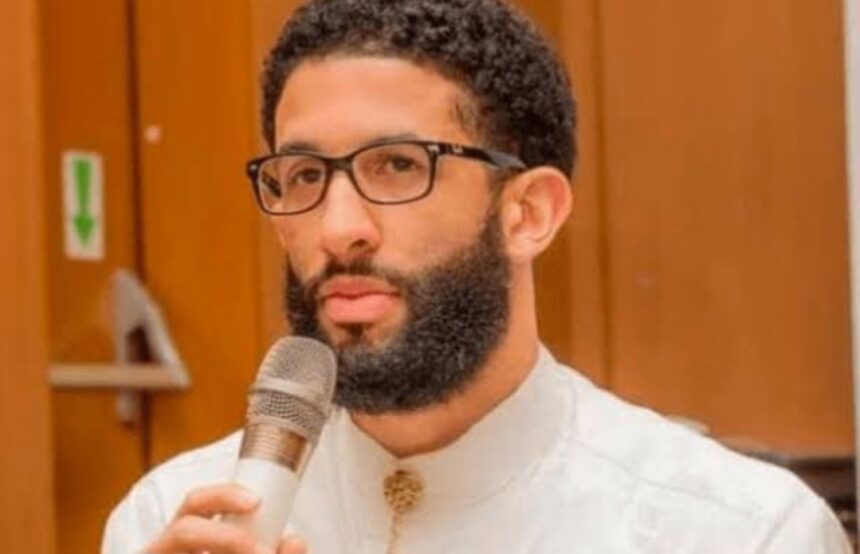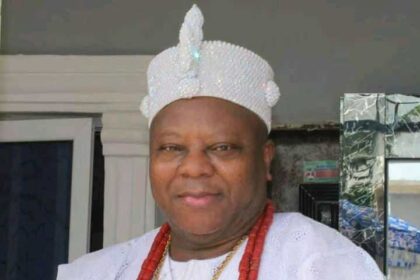● Swift Ascent, Swifter Fall: President Tinubu’s Media Aide Bites The Dust
● When Inordinate Ambition Costs More Than It Gains
Ajuri Ngelale’s story must serve as a cautionary tale, not a victory lap, for those steering the ship of state. The intrigue that surrounded the rise of the former Special Adviser to the President, and the backroom machinations that hastened his fall should not be dismissed as the whims of one man’s overreaching ambition.
They represent a broader culture within the presidency—one where inordinate self-interest is allowed to flourish unchecked, and where the business of governance is often overshadowed by the politics of power.
It reveals the perilous currents beneath the surface of Aso Rock—a warning to those who mistake personal ambition for public service. For in the end, it is not Ajuri’s departure that should concern us, but the labyrinth of intrigue that shaped both his rise and his fall. Until the presidency confronts the forces that allow ambition to eclipse duty, it will find itself trapped in a cycle of appointing more Ajuri Ngelales—figures whose meteoric rise may one day result in equally spectacular falls.
Ngelale was once the media darling of President Bola Tinubu’s administration. Young, articulate, and driven, he rose quickly through the political ranks, with the weight of the president’s son, Seyi, and the then-Chief of Staff, Femi Gbajabiamila, behind him. His ambition seemed unstoppable—until it wasn’t. The same force that propelled him upward ultimately became his undoing, turning his rise from grace into a cautionary tale about unchecked ambition.
The narrative that Ngelale voluntarily took an indefinite leave of absence to care for a sick relative is one that the presidency has readily fed the public. However, insiders at the Aso Rock Villa paint a very different picture: Ajuri Ngelale was sacked by President Bola Tinubu. His exit, framed as a graceful retreat, is, in truth, the final chapter of a man undone by his own ambitions.
To the untrained eye, Ngelale’s story may seem like one of success—a young man from a humble background, working his way up the political ladder to become the President’s Special Adviser on Media and Publicity. But beneath the surface lies a different tale, one of missteps, power grabs, and a misplaced sense of invincibility.
Ngelale’s rise began in earnest in July 2023 when he was handpicked to be Tinubu’s media adviser. Backed by Seyi Tinubu and Femi Gbajabiamila, his appointment was a nod to his perceived brilliance, and at 37, he became one of the youngest to occupy such a high-profile role. But what seemed like a bright future quickly turned tumultuous. By May 2024, his unchecked ambition had led him to propose and create multiple new roles for himself, including Special Presidential Envoy on Climate Action, Chairman of the Presidential Steering Committee on Project Evergreen, and Secretary of the Presidential Committee on Climate Action.
While these titles sounded impressive, they signaled something more troubling to many in Aso Rock—a power grab. Without proper clearance from George Akume, the Secretary to the Government of the Federation (SGF), Ngelale announced these appointments, triggering a wave of discontent within the corridors of power. Akume, deeply offended, reported the overreach directly to President Tinubu. This miscalculation set the stage for Ngelale’s fall, widening the chasm between him and key presidential figures like Hakeem Muri-Okunola, Victor Adeleke, and even Seyi Tinubu, the very man who once championed his appointment.
Adding insult to injury were Ngelale’s growing mistakes as spokesman. His ill-fated announcement that President Tinubu was the first African president to ring the closing bell at Nasdaq, followed by the premature declaration of the lifting of the United Arab Emirates’ visa ban on Nigerians, became high-profile embarrassments for the presidency. For a man who once thrived on his sharp media instincts, these errors were fatal. They marked him as sloppy, and even childish, within the inner circles of Aso Rock.
By July 2024, it became clear that Ngelale’s time was running out. His decision to announce on social media that he had “broken the State House record for most press statements issued in a single day” was the last straw for many insiders. His penchant for grandstanding, coupled with his refusal to delegate responsibilities or collaborate with the experienced hands within the presidency, left him isolated.
Tinubu, who had been drawn to Ngelale because of a well-delivered CNN interview in May 2023, soon found himself questioning why his once-media-savvy adviser was no longer making regular appearances on television. His absence from the public eye was telling—Ngelale had lost his touch.
And so, his unceremonious exit was set in motion. Presented with the choice to pick between his role as presidential spokesman or climate change envoy, Ngelale hesitated. Ultimately, he chose to remain as the spokesman, but by then, it was too late. The writing was already on the wall—he needed help. Despite his best efforts to hold onto power, the tides had turned against him.
In the end, Ngelale’s story is not just about one man’s fall from grace—it’s a cautionary tale for the entire administration. President Tinubu must be more discerning in choosing those he surrounds himself with. If not, his kitchen cabinet will be filled with more Ajuris—men and women whose ambitions overshadow their duties, whose pursuit of power blinds them to the greater good.
Let this be a lesson to those in power: competence, integrity, and dedication to service must be the primary criteria for selecting public officers. Anything less invites chaos. Ajuri Ngelale’s exit should not be seen as a victory for the presidency, but rather as a warning—a glimpse into what happens when ambition goes unchecked and the wrong individuals are allowed to shape the future of the nation.
Follow the TheCapital channel on WhatsApp: https://whatsapp.com/channel/0029Vak8l9A0AgW5dkRkwk29




